October 14, 2016 •
U.S. Supreme Court Declines to Hear Colorado Campaign Finance Case
The U.S. Supreme Court recently denied the state of Colorado’s petition for review of a 2016 federal appeals court ruling regarding state campaign finance rules. In Coalition for Secular Government v. Williams, the United States Court of Appeals for the […]
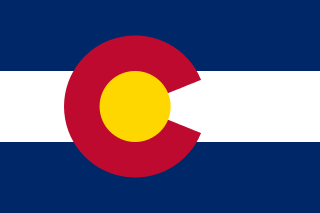 The U.S. Supreme Court recently denied the state of Colorado’s petition for review of a 2016 federal appeals court ruling regarding state campaign finance rules.
The U.S. Supreme Court recently denied the state of Colorado’s petition for review of a 2016 federal appeals court ruling regarding state campaign finance rules.
In Coalition for Secular Government v. Williams, the United States Court of Appeals for the 10th Circuit affirmed a lower court’s ruling declaring the state’s issue committee regulatory framework unconstitutional as applied to the plaintiff, but declined to address the facial validity of the Colorado Constitution’s $200 threshold for issue committee reporting. The strength of the public’s interest in issue committee disclosure depends, in part, on how much money the issue committee has raised or spent.
The appeals court agreed with the 9th Circuit’s characterization of the sliding scale by noting “. . . the value of this financial information to the voters declines drastically as the value of the expenditure or contribution sinks to a negligible level. As the monetary value of an expenditure in support of a ballot issue approaches zero, financial sponsorship fades into support and then into mere sympathy” [Appellate Case: 14-1469; see Canyon Ferry Rd. Baptist Church of E. Helena, Inc. v. Unsworth, 556 F.3d 1021, 1033 (9th Cir. 2009)].
September 30, 2016 •
Chairman of Denver Board of Ethics Resigns
Brian Spano, chairman of the Denver Board of Ethics, has resigned due to a potential conflict of interest. Spano is a law partner with Kristin Bronson, the newly appointed city attorney. Mayor Michael Hancock appointed Bronson in mid-August, and she […]
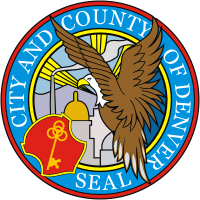
Brian Spano, chairman of the Denver Board of Ethics, has resigned due to a potential conflict of interest.
Spano is a law partner with Kristin Bronson, the newly appointed city attorney. Mayor Michael Hancock appointed Bronson in mid-August, and she will begin her position with the city on October 17.
Because the city attorney occasionally appears before the Board of Ethics, Spano is stepping down to avoid any questions about future conflicts of interest, real or perceived. His term was set to end in April. His resignation is effective October 19.
After being challenged in court by a lobbyist and political consultant, a proposed Denver ballot initiative was recently withdrawn by its backers. The initiative would have lowered contribution limits for elected officials, banned corporate contributions to candidates, and created a […]
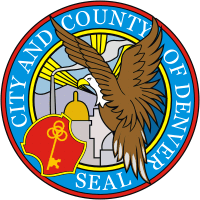 After being challenged in court by a lobbyist and political consultant, a proposed Denver ballot initiative was recently withdrawn by its backers.
After being challenged in court by a lobbyist and political consultant, a proposed Denver ballot initiative was recently withdrawn by its backers.
The initiative would have lowered contribution limits for elected officials, banned corporate contributions to candidates, and created a public financing system for city elections.
The challenge alleged the initiative violated the single-subject rule for ordinances and the ballot title inadequately summarized the measure and included words intended to sway voters.
The measure was withdrawn for 2016 due to the resources required to fight the legal challenge and to run a fall campaign in such an expensive election season.
June 27, 2016 •
Boulder, CO Updates Campaign Finance Rules
Boulder City Council has adopted two new ordinances creating a new municipal election code and updating campaign finance rules. The city will no longer be dependent on the state election code, and city staff will no longer need to continually […]
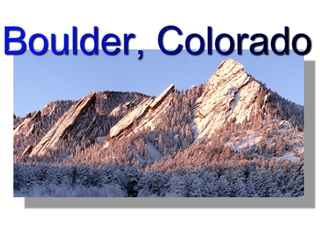 Boulder City Council has adopted two new ordinances creating a new municipal election code and updating campaign finance rules.
Boulder City Council has adopted two new ordinances creating a new municipal election code and updating campaign finance rules.
The city will no longer be dependent on the state election code, and city staff will no longer need to continually update the code for local elections based on state legislative changes. Other cities, including, but not limited to, Denver, Colorado Springs, and Fort Collins, have adopted similar local codes.
The changes also clarify campaign finance disclosure requirements; campaigning done without cost, such as the use of social media, need not be disclosed. Critics believe the new provisions were rushed and encourage a lack of transparency.
June 1, 2016 •
Denver Considers Strengthening Ethics Laws
Denver Councilman Kevin Flynn is drafting legislation to amend the city ethics code. His proposal will establish a monetary gift limit. Officials or employees in a position to take action benefiting a donor would be prohibited from accepting more than […]
 Denver Councilman Kevin Flynn is drafting legislation to amend the city ethics code.
Denver Councilman Kevin Flynn is drafting legislation to amend the city ethics code.
His proposal will establish a monetary gift limit. Officials or employees in a position to take action benefiting a donor would be prohibited from accepting more than $250 from a donor in each calendar year.
Other proposed ethics changes may appear in a ballot initiative set to be finalized soon. The measure may include lower campaign contribution limits for local candidates and a ban on corporate contributions, as well as create a public financing system for local elections.
Proponents of the system argue it would provide incentive for candidates to build wider bases of funding support from small-dollar donors. The Denver Board of Ethics has been discussing changes to city ethics laws for nearly two years.
May 12, 2016 •
Colorado General Assembly Adjourns
The second regular session of the 70th Colorado General Assembly adjourned on Wednesday, May 11. An expansion of state liquor laws and a bill allowing out-of-state investors to own marijuana shops were some of the measures approved just prior to […]
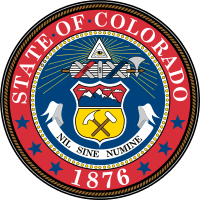 The second regular session of the 70th Colorado General Assembly adjourned on Wednesday, May 11.
The second regular session of the 70th Colorado General Assembly adjourned on Wednesday, May 11.
An expansion of state liquor laws and a bill allowing out-of-state investors to own marijuana shops were some of the measures approved just prior to adjournment.
The first regular session of the 71st General Assembly will convene on January 11, 2017.
March 21, 2016 •
Colorado Independent Ethics Commission Names New Executive Director
The Colorado Independent Ethics Commission has a new executive director. Constantinos “Dino” Ioannides assumed the role on March 1. The commission has been under scrutiny lately for its overall efficacy regarding ethics violations. The state auditor recently issued a scathing […]
 The Colorado Independent Ethics Commission has a new executive director. Constantinos “Dino” Ioannides assumed the role on March 1.
The Colorado Independent Ethics Commission has a new executive director. Constantinos “Dino” Ioannides assumed the role on March 1.
The commission has been under scrutiny lately for its overall efficacy regarding ethics violations. The state auditor recently issued a scathing audit highlighting a lack of guidance on conflicts of interests, the commission’s failure to retain documents, and missing hearing minutes.
Ioannides serves as the third director since the commission was created by voter approval in 2006.
March 21, 2016 •
Proposed Bill Would Allow Colorado Independent Ethics Commission to Investigate Complaints
The Colorado Independent Ethics Commission is coming under harsh criticism in the wake of records released by the state auditor, with some claiming it is unethical. Often, the burden of investigating and presenting a case for an ethics violation falls […]
 The Colorado Independent Ethics Commission is coming under harsh criticism in the wake of records released by the state auditor, with some claiming it is unethical. Often, the burden of investigating and presenting a case for an ethics violation falls upon the person filing the complaint. As an alternative, state Rep. Beth McCann is sponsoring House Bill 1216 to enhance the ability of the commission to investigate public officials who skirt the ethics rules.
The Colorado Independent Ethics Commission is coming under harsh criticism in the wake of records released by the state auditor, with some claiming it is unethical. Often, the burden of investigating and presenting a case for an ethics violation falls upon the person filing the complaint. As an alternative, state Rep. Beth McCann is sponsoring House Bill 1216 to enhance the ability of the commission to investigate public officials who skirt the ethics rules.
One of the more specific issues addressed in HB 1216 is the role of the attorney general. Currently, the commission relies on the legal assistance of the attorney general; if the person accused of an ethics violation is an elected official, the attorney general must also provide legal assistance to the official. HB 1216 would require the panel to retain or employ independent counsel rather than rely on the attorney general.
In Coalition for Secular Government v. Williams, the United States Court of Appeals for the 10th Circuit affirmed a lower court’s ruling declaring the state’s issue committee regulatory framework unconstitutional as applied to the plaintiff, but declined to address the […]
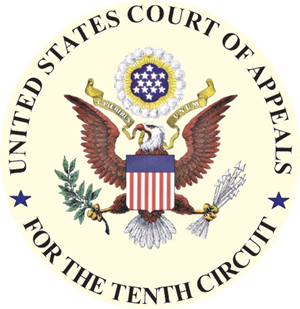 In Coalition for Secular Government v. Williams, the United States Court of Appeals for the 10th Circuit affirmed a lower court’s ruling declaring the state’s issue committee regulatory framework unconstitutional as applied to the plaintiff, but declined to address the facial validity of the Colorado Constitution’s $200 threshold for issue committee reporting. However, the appeals court did emphasize there must be a legitimate public interest in requiring financial disclosure from issue committees. Moreover, the strength of the public’s interest in issue committee disclosure depends, in part, on how much money the issue committee has raised or spent.
In Coalition for Secular Government v. Williams, the United States Court of Appeals for the 10th Circuit affirmed a lower court’s ruling declaring the state’s issue committee regulatory framework unconstitutional as applied to the plaintiff, but declined to address the facial validity of the Colorado Constitution’s $200 threshold for issue committee reporting. However, the appeals court did emphasize there must be a legitimate public interest in requiring financial disclosure from issue committees. Moreover, the strength of the public’s interest in issue committee disclosure depends, in part, on how much money the issue committee has raised or spent.
The court went on to agree with the 9th Circuit’s characterization of the sliding scale by noting “. . . the value of this financial information to the voters declines drastically as the value of the expenditure or contribution sinks to a negligible level. As the monetary value of an expenditure in support of a ballot issue approaches zero, financial sponsorship fades into support and then into mere sympathy” [Appellate Case: 14-1469; see Canyon Ferry Rd. Baptist Church of E. Helena, Inc. v. Unsworth, 556 F.3d 1021, 1033 (9th Cir. 2009)].
In its earlier holding, the lower court advised state lawmakers the secretary of state will “be on the hook for fees every time a group, like the Coalition for Secular Government, falls under the $200 trigger for issue committee status and has to sue to vindicate its First Amendment rights” [D.C. No. 1:12-CV-01708-JLK].
On June 10, the Colorado Secretary of State posted notice of the permanent adoption of amendments to campaign finance rules. The rules concerning campaign and political finance have been recodified to improve the administration and enforcement of state campaign finance […]
 On June 10, the Colorado Secretary of State posted notice of the permanent adoption of amendments to campaign finance rules. The rules concerning campaign and political finance have been recodified to improve the administration and enforcement of state campaign finance law.
On June 10, the Colorado Secretary of State posted notice of the permanent adoption of amendments to campaign finance rules. The rules concerning campaign and political finance have been recodified to improve the administration and enforcement of state campaign finance law.
Specifically, the rule revisions clarify and simplify the rules, remove language duplicative of statute, and ensure consistency with department rulemaking standards. The rules were considered at a rulemaking hearing on May 21. All amendments will become effective 20 days after they are published in the Colorado Register.
May 7, 2015 •
Colorado General Assembly Adjourns Sine Die
The first regular session of the seventieth Colorado General Assembly adjourned sine die on Wednesday, May 6. Legislators sent roughly 50 bills to the Governor before adjourning hours shy of the midnight deadline. Measures passed include a tax increment financing […]
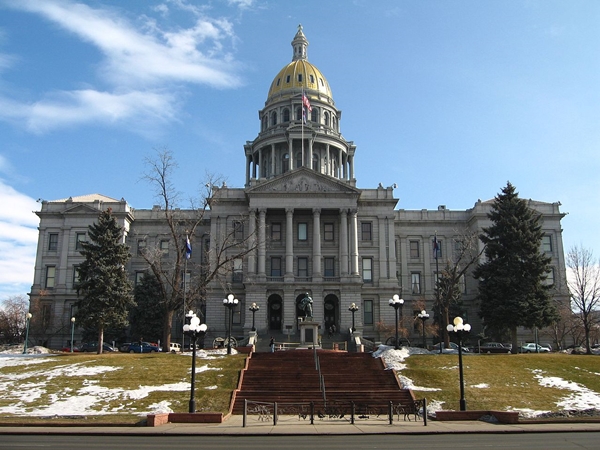 The first regular session of the seventieth Colorado General Assembly adjourned sine die on Wednesday, May 6. Legislators sent roughly 50 bills to the Governor before adjourning hours shy of the midnight deadline.
The first regular session of the seventieth Colorado General Assembly adjourned sine die on Wednesday, May 6. Legislators sent roughly 50 bills to the Governor before adjourning hours shy of the midnight deadline.
Measures passed include a tax increment financing bill giving counties, school boards, and special districts more say in how cities waive future tax dollars for urban renewal projects, a bill increasing the pay of the governor, other state executive officers, lawmakers, and county officials effective in 2019, and a bill to reduce standardized testing in Colorado public schools.
Photo of the Colorado State Capitol by Greg O’Beirne on Wikimedia Commons.
On March 9, the Colorado Independent Ethics Commission released Position Statement 15-01, increasing the gift limit from $53 to $59. Public officials or employees are prohibited from soliciting, accepting, or receiving any gift or other thing of value worth more […]
 On March 9, the Colorado Independent Ethics Commission released Position Statement 15-01, increasing the gift limit from $53 to $59. Public officials or employees are prohibited from soliciting, accepting, or receiving any gift or other thing of value worth more than $59 in any calendar year without giving lawful consideration of equal or greater value in return, unless the gift or thing of value falls under a listed exception.
On March 9, the Colorado Independent Ethics Commission released Position Statement 15-01, increasing the gift limit from $53 to $59. Public officials or employees are prohibited from soliciting, accepting, or receiving any gift or other thing of value worth more than $59 in any calendar year without giving lawful consideration of equal or greater value in return, unless the gift or thing of value falls under a listed exception.
The gift limit is adjusted in accordance with the United States Bureau of Labor Statistics Consumer Price Index for Denver-Boulder-Greeley every four years. The $59 limit will be recalculated in the first quarter of 2019.
December 3, 2014 •
U.S. Statehouse Series – Colorado, The Centennial State
This week we visit the state of Colorado and its capitol building. Located in the “Mile High City” of Denver, the capitol building was constructed in the 1890’s, and almost two decades later a 24 karat gold plated dome was […]
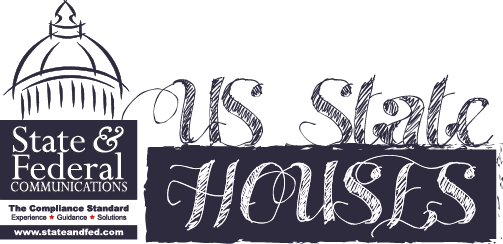 This week we visit the state of Colorado and its capitol building.
This week we visit the state of Colorado and its capitol building.
Located in the “Mile High City” of Denver, the capitol building was constructed in the 1890’s, and almost two decades later a 24 karat gold plated dome was added in commemoration of Colorado’s gold rush days.
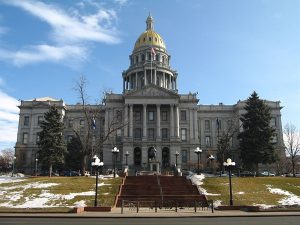 The building’s exterior is composed of Colorado white granite, while its interior contains two rare types of marble: rose and mauve. In fact, the marble was so rare that its known supply was completely used up in the construction of the capitol, a process that took six years to complete. In fact, the building itself was composed with the nation’s capitol in mind.
The building’s exterior is composed of Colorado white granite, while its interior contains two rare types of marble: rose and mauve. In fact, the marble was so rare that its known supply was completely used up in the construction of the capitol, a process that took six years to complete. In fact, the building itself was composed with the nation’s capitol in mind.
The interior is composed of brass and stained glass with the dome towering 180 feet above. Inside you’ll find beautifully painted portraits of each U.S. president from Washington to Clinton. On the first floor are the offices of the Governor and Lt. Governor.
The capitol also serves as the center for legislation, housing the House and Senate Chambers, as well as the Legislative Hearing Room, which was formerly the state Supreme Court Chambers. The House of Representatives Gallery and the Senate Gallery are magnificently decorated with beautiful stained glass pieces as well as embedded brass, its luxurious features complemented with comfortable theater seating.
Thank you once again for joining us this week during our exploration of and education on the wonderful state of Colorado’s capitol. You can take a virtual tour of the Colorado Capitol, or arrange for an actual tour here.
Don’t forget to join us as we take on yet another statehouse!
Photo of the Colorado State Capitol by Greg O’Beirne on Wikimedia Commons.
October 15, 2014 •
Federal Appeals Court Rules for Citizens United
On Tuesday, October 14, the 10th Circuit Court of Appeals ruled Citizens United may air a documentary slamming Colorado liberals without disclosing its backers. The conservative group argued Colorado campaign finance laws burden some speakers while protecting others, in violation […]
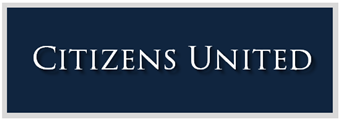 On Tuesday, October 14, the 10th Circuit Court of Appeals ruled Citizens United may air a documentary slamming Colorado liberals without disclosing its backers. The conservative group argued Colorado campaign finance laws burden some speakers while protecting others, in violation of the First Amendment.
On Tuesday, October 14, the 10th Circuit Court of Appeals ruled Citizens United may air a documentary slamming Colorado liberals without disclosing its backers. The conservative group argued Colorado campaign finance laws burden some speakers while protecting others, in violation of the First Amendment.
The court issued an emergency injunction allowing Citizens United to get the film out before the Nov. 4 election. While the movie will be exempt from disclosure, the court will allow the secretary of state to require disclosure for advertisements about it, if the ads are in support or in defeat of a named candidate.
State and Federal Communications, Inc. provides research and consulting services for government relations professionals on lobbying laws, procurement lobbying laws, political contribution laws in the United States and Canada. Learn more by visiting stateandfed.com.


